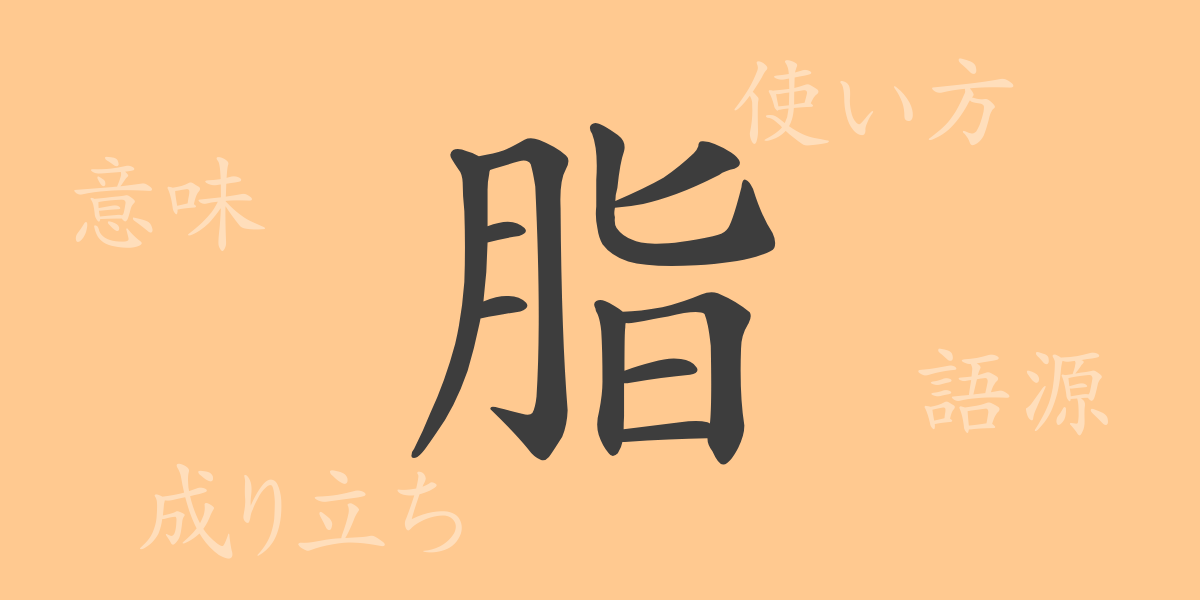The kanji “脂(あぶら)” is commonly used in daily life. You might feel something is “greasy” during a meal or hear about “皮脂(ひし)” balance in beauty discussions. But what history does this seemingly simple kanji have, and how is it used in our language? In this article, we delve into the origins, meanings, and uses of the kanji “脂(あぶら)”, including idioms and proverbs, to uncover its full scope.
Origins of 脂(あぶら) (Etymology)
The kanji “脂(あぶら)” has been used since ancient times to mean meat or fat. In ancient Chinese texts, it appears as a word for animal fat. This kanji uses the radical “月(にくづき)”, representing flesh or body-related meanings, combined with “旨(うま)”, indicating deliciousness or the best part of meat. This combination signifies the flavorful part of meat.
Meanings and Uses of 脂(あぶら)
In modern Japanese, “脂(あぶら)” primarily refers to animal fat. In culinary contexts, it describes the fatty parts of ingredients or greasiness in food. Additionally, it is used metaphorically in expressions like “脂が乗る(あぶらがのる)” to describe something going well or someone looking healthy and lively, and “顔に脂が乗る(かおにあぶらがのる)”, meaning someone’s face looks fuller and healthier.
Readings, Stroke Count, and Radical of 脂(あぶら)
Let’s take a closer look at the readings and structure of the kanji “脂(あぶら)”:
- Readings: The on’yomi (音読み) reading is “シ”, and the kun’yomi (訓読み) reading is “あぶら”.
- Stroke count: “脂(あぶら)” has a total of 14 strokes.
- Radical: The radical is “月(つき)”, categorized under the meat radical (にくづきぶ).
Idioms, Phrases, and Proverbs Using 脂(あぶら)
What idioms and expressions use the kanji “脂(あぶら)”? Here are some examples:
- 脂肪(しぼう): Refers to fat stored in the body.
- 脂が乗る(あぶらがのる): Indicates reaching the best condition. It can mean things are going well, or a person is fully demonstrating their abilities.
- 脂を取る(あぶらをとる): Removing excess fat in cooking. It also metaphorically means to make an excessive profit.
- 脂が出る(あぶらがでる): Things start going well, or a person becomes more active and lively.
Conclusion on 脂(あぶら)
The kanji “脂(あぶら)” covers a wide range of uses, from its basic meaning of animal fat to cooking, describing people’s conditions, and indicating progress. As a familiar character in the Japanese language, it carries a rich history and cultural significance. Whether it’s in culinary traditions or linguistic expressions, “脂(あぶら)” is deeply rooted in our lives. This single kanji showcases the profoundness of the Japanese language and its culture.

























